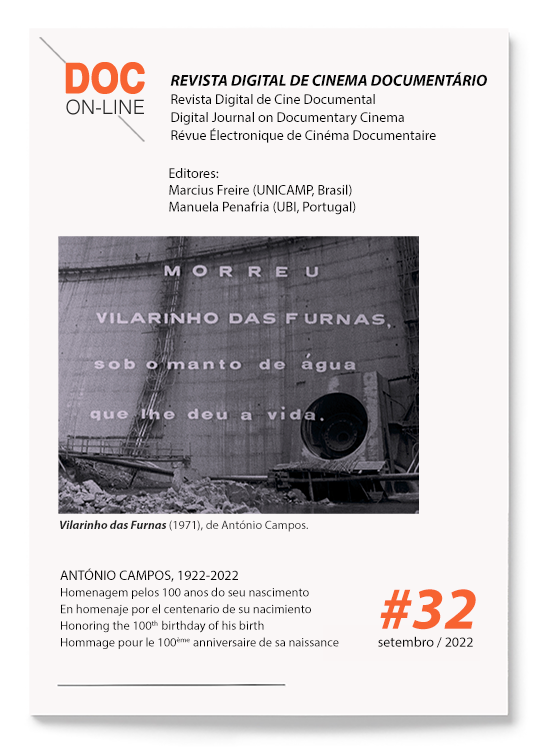Do que aprendi com António Campos
Mots-clés :
affections, amateur, centre-périphérie, classes sociales, poétique.Résumé
En considérant l'œuvre d'António Campos comme un tout, et non partagée entre documentaire et fiction, nous présentons une réflexion personnelle sur deux des leçons que l'œuvre de cet auteur permet d'apporter : son non-amateurisme et la nécessité de changer la société portugaise de l'époque.Références
Levi-Strauss, C. (1966), O pensamento selvagem [Orig. 1962], Campinas, SP: Papirus.
Neuendorf, H. (2018), Rembrandt’s Monumental Masterpiece the ‘Night Watch’ Will Be Restored—and You Can Watch It Happen. Disponível em: https://news.artnet.com/art-world/rembrandt-night-watch-restoration-1372738
Penafria, M. (s.d.), O Documentarismo do Cinema. Uma reflexão sobre o filme Documentário. Disponível em: http://www.bocc.ubi.pt/pag/penafria-manuela-documentarismo-reflexao.pdf
Santos, P. M. e Alzetta, R. (2015), ‘The camera tends to lie and the audience tends to believe – the implications of the use of film in ethnographic research: the case of the international European research project TRESEGY’, ANTROPOlógicas, nº2 5, pp.17.-22. Disponível em: https://revistas.rcaap.pt/antropologicas/article/view/2115
Verdú, V. (2012), 'Ecce Homo' – the rubbish Effect. Disponível em: https://english.elpais.com/elpais/2012/08/29/inenglish/1346247076_925496.html
Téléchargements
Publiée
Numéro
Rubrique
Licence

DOC Online adopte une licence Creative Commons International CC BY 4.0 qui permet le partage du travail avec la reconnaissance de l'auteur et la publication initiale dans la révue DOC On-line, cela signifie que:
1) En soumettant un article, les auteurs conviennent que les droits de première publication de leur travail sont attribués à Doc On-line;
2) Après la publication en DOC On-line les auteurs peuvent republier leurs travaux, en ligne ou imprimée, sous la condition de clairement mentionner la première édition en DOC On-line.

